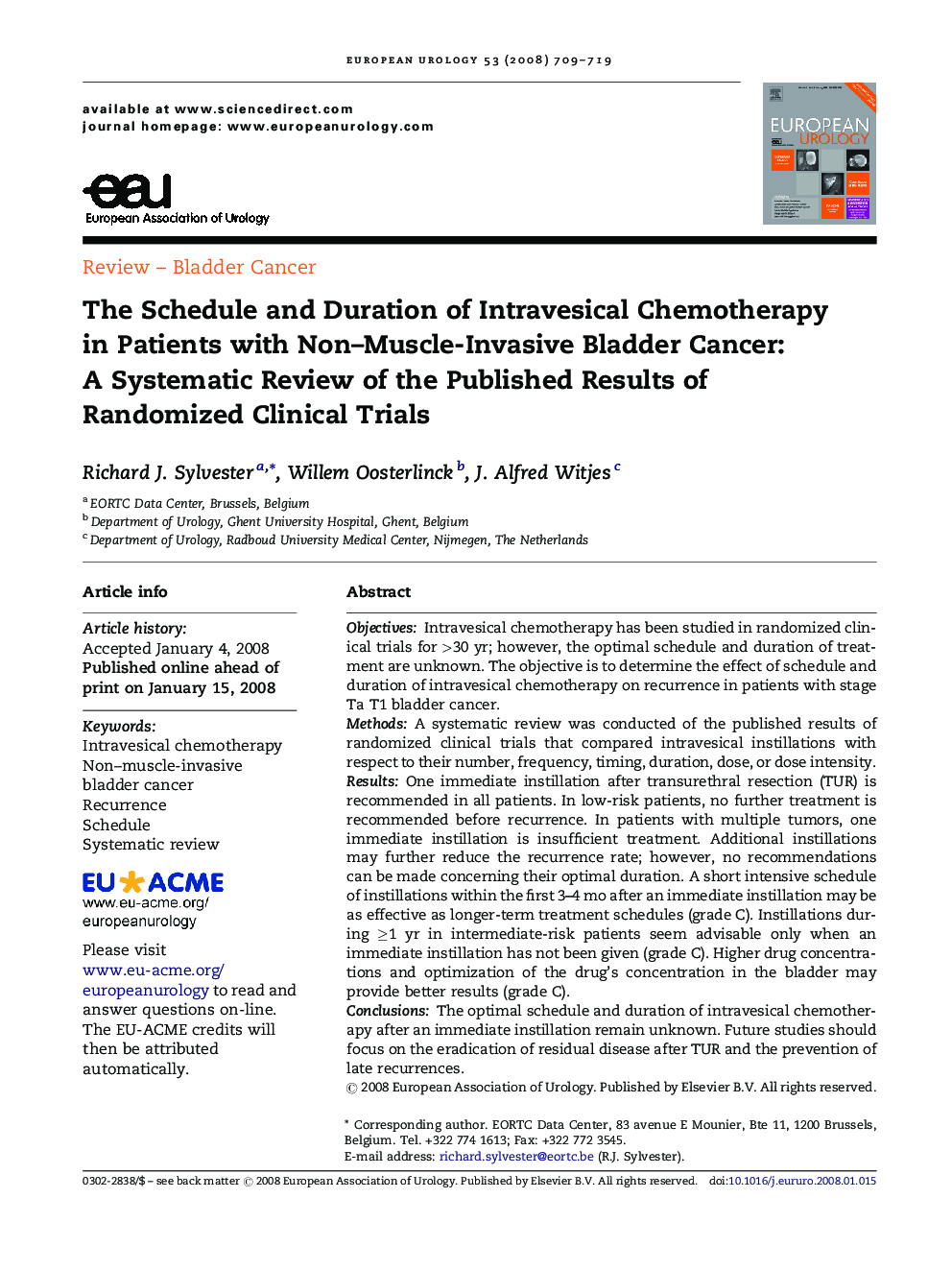| Article ID | Journal | Published Year | Pages | File Type |
|---|---|---|---|---|
| 3929332 | European Urology | 2008 | 11 Pages |
ObjectivesIntravesical chemotherapy has been studied in randomized clinical trials for >30 yr; however, the optimal schedule and duration of treatment are unknown. The objective is to determine the effect of schedule and duration of intravesical chemotherapy on recurrence in patients with stage Ta T1 bladder cancer.MethodsA systematic review was conducted of the published results of randomized clinical trials that compared intravesical instillations with respect to their number, frequency, timing, duration, dose, or dose intensity.ResultsOne immediate instillation after transurethral resection (TUR) is recommended in all patients. In low-risk patients, no further treatment is recommended before recurrence. In patients with multiple tumors, one immediate instillation is insufficient treatment. Additional instillations may further reduce the recurrence rate; however, no recommendations can be made concerning their optimal duration. A short intensive schedule of instillations within the first 3–4 mo after an immediate instillation may be as effective as longer-term treatment schedules (grade C). Instillations during ≥1 yr in intermediate-risk patients seem advisable only when an immediate instillation has not been given (grade C). Higher drug concentrations and optimization of the drug's concentration in the bladder may provide better results (grade C).ConclusionsThe optimal schedule and duration of intravesical chemotherapy after an immediate instillation remain unknown. Future studies should focus on the eradication of residual disease after TUR and the prevention of late recurrences.
